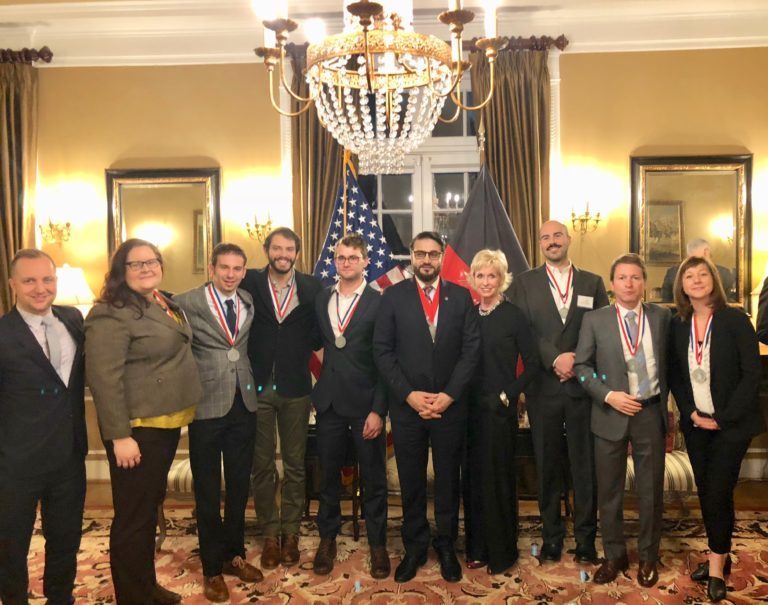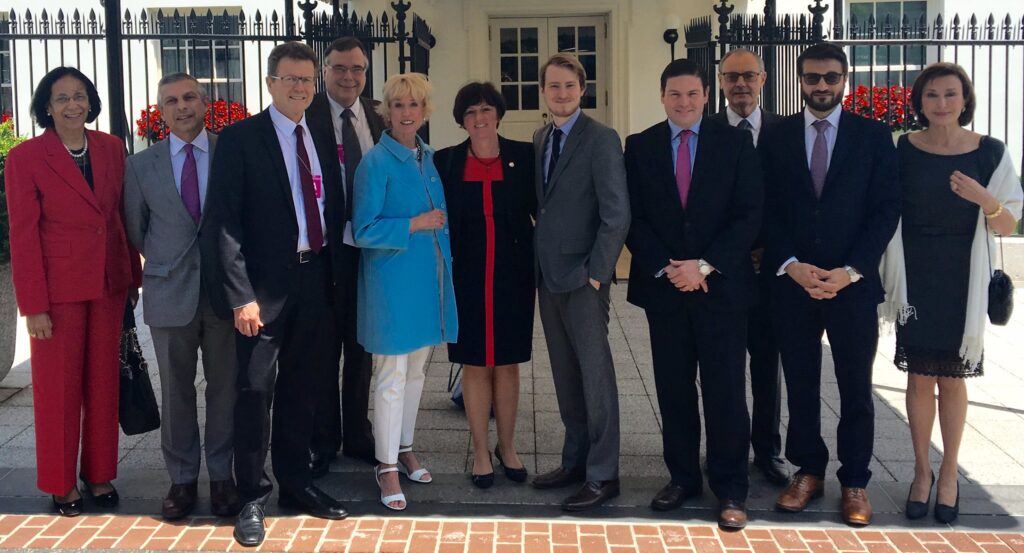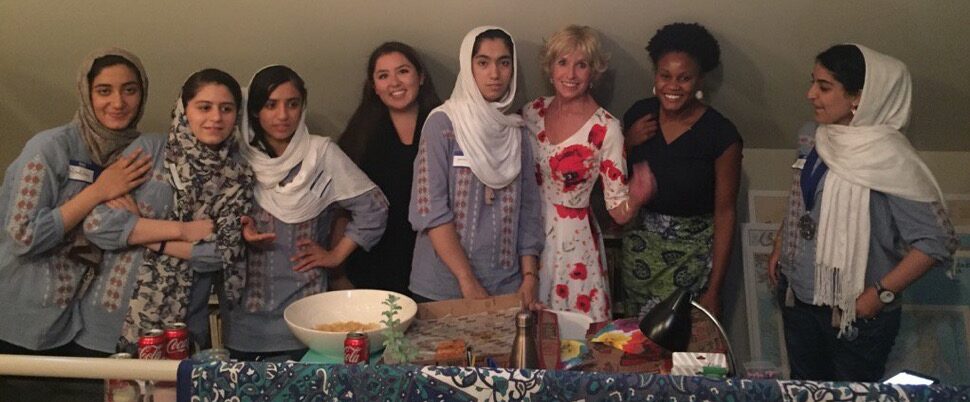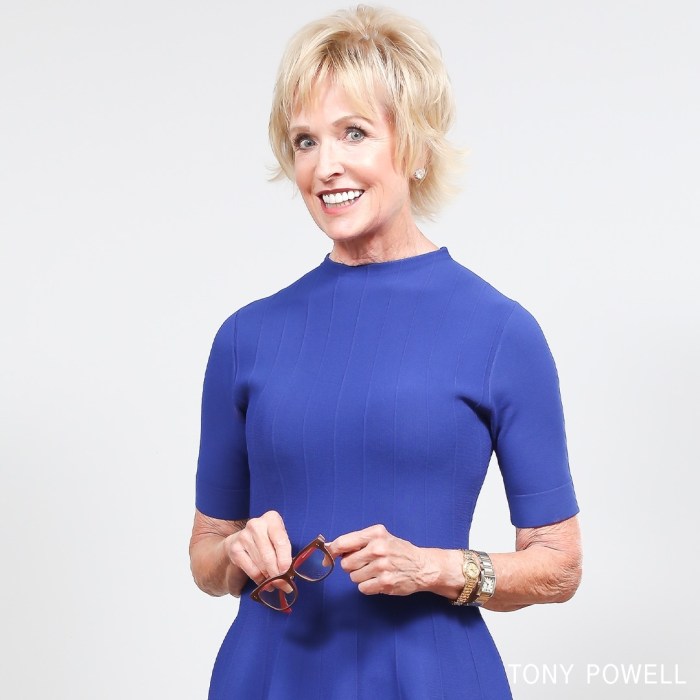
The Institute For Education, of with Kemper is CEO, had the honor of hosting a salon with Ambassador Mohib in November of 2017. This follow-up discussion between H.E. Mohib and Coach Kemper seeks to discuss topics beyond the scope of mainstream media coverage about Afghanistan.
“Beyond the Headlines,” what is the one thing you’d like American news consumers to know about Afghanistan that you feel has not gotten enough attention from the media?
Despite all of our on-going challenges and our violent history, Afghanistan today is a success story. Since 2002, Afghanistan has had many achievements in education, healthcare, anti-corruption efforts, security, women’s empowerment, regional cooperation, anti-corruption and counter-narcotics, and across the board in other areas. Media tends to focus on the negative stories that come out of the country, but I believe the American people, the international community, and also the Afghan people deserve to hear more about the incredible progress we have made. For example, since 2014, our brave National Defense and Security Forces have been successfully leading the fight against the threat of global terrorism. In 2001, we didn’t even have an army or police force. Another example of the progress was exemplified in the story of the Afghan girls’ robotics team who won the courageous achievement award at the First Global Competition in July 2017 here in Washington. They recently won the entrepreneur challenge at the Estonian Robotics Festival, the biggest robotics festival in Europe. President Ghani’s administration is also in the midst of carrying out a comprehensive reforms agenda that is cutting corruption at its roots, and putting Afghan citizens back at the heart of government’s purpose. So despite the attacks we confront from terrorists regularly, we stand united and resilient, and are more than ever committed to bringing positive and lasting change in Afghanistan. We are seeing the results of those efforts now.
You’ve been vocal in your optimism about how the Trump Administration’s outlook on Afghanistan differs from the previous Administration’s what are the key areas of opportunity here?
I was in Kabul the day President Trump announced the strategy, and there was near seamless consensus amongst Afghan politicians and citizens alike that this strategy was a welcomed and correct approach. I believe that there are three unique opportunities to achieve a peaceful outcome, which previous strategies lacked. First of all, the strategy is conditions-based, not arbitrarily time-bound. We finally have this strategic advantage over the enemy. Second, the strategy was developed in close consultation and dialogue with the Afghan government, so it has allowed both of our countries to lay out our needs in this mutually-beneficial partnership. Third, and perhaps most importantly, the strategy confronts directly the issue of Pakistan harboring terrorists who terrorize the Afghan people and pose a threat to global security, and the strategy is holding the Pakistan accountable for that.
Follow-up: how has this changed your role as a diplomat? Is there more room for collaboration? Better communication?
Yes. Our relationship with the United States is a partnership, based on our mutual interests and goals. The collaboration and communication is strong. We are on the same page about how to fight terrorism effectively—it poses a threat not just to the Afghan people, but people everywhere. Now, there is also room for further enhancing economic relations between the two countries especially at this juncture when we are looking forward to investment from American firms in Afghanistan’s mining sector.
Here at IFE, we love when governments use new technologies to better deliver services and information to constituents. How has the increased importance of social media allowed you to amplify positive messages about all Afghanistan has to offer, aside from daily conflict news coverage? (For example: Recently, I saw the Embassy’s twitter shared a story from the World Bank “Afghanistan: Improved Roads Unlocks Access to Services and Opportunities”).
Afghans are extremely interested and involved in their country’s progress and politics, and almost all Afghans across the country, and in the diaspora, have access to information sources, whether that is radio, TV, newspaper, or internet and social media. Over 25 million Afghans use a mobile phone, and nearly 3 million are active on social media, as of 2017, and those numbers are only growing. Of course the government uses media and social media platforms to communicate to citizens and make efforts to engage them in a two-way dialogue (via call-in lines, or on social media, etc), but Afghans also use social media to communicate with one another and connect on important issues the country is facing. For example, social media has become a tool for citizen journalism, useful in exposing acts of corruption or violence, and allowing like-minded people to come together around issues. There has also been a boom in private media in the past 16 years, and more recently, a trend in televised debate programs over the past 5 years, where government officials, civil society, and citizens can debate important issues. These are all important aspects to a growing and flourishing democracy—we are debating our differences in democratic platforms, instead of resorting to violence, as had happened in the past. But aside from media and social media in the country, we are also using technology in innovative ways to further the government’s reform agenda to cut corruption and make government more transparent. For example, next week, President Ghani will inaugurate the electronic national identification card system by being the first Afghan citizen to receive his e-ID card at one of the many stations set up around the country to administer the cards. This has been a years-long work in progress, and the electronic ID cards will help eliminate fraud at polling stations during our upcoming elections next year, and in the future. We have also started administering salaries electronically to some members of the security forces, which has also cut opportunities for corruption.
As a diplomat, I’m sure you’ve navigated some tough conversations and worked with those who’ve strongly disagreed with your position. What are some of your favorite ways to find common-ground and build strong relationships?
I focus on the similarities, instead of the differences. Every human being has common ground with one another, and we have to find the common ground, and understand each other’s positions through our similarities and mutual interests. I have found this to be true in many circumstances, whether I’m visiting with Americans in the deep south of the United States who have no knowledge about Afghanistan, or I’m having a political debate with my fellow Afghans in Kabul. In Afghanistan, that common ground is usually pain—we all have experienced a common suffering and pain in our lives. It’s our obligation, as the caretakers of our children’s future, to find common ground with one another and pursue a peaceful, unified path ahead, no matter our differences. We have all suffered, but we all want peace.

You and your wife, Lael, have been such great friends to the Institute for Education. As you know we are passionate about fostering a sense of soft-diplomacy and convening people of different perspectives. Do you see this as something that society needs more of? Do we already have the right amount? What sorts of efforts would you like to see going forward?
I firmly believe that a society is strong when there is inclusivity. It is of foundational importance for a vibrant democratic society to offer every segment a chance to contribute to society. This is what Lael and I appreciate about IFE. Its initiatives bring innovators, civil society, journalists, government, and academia together and provide a platform for understanding and dialogue on global issues.

What do you think it means symbolically for the Afghan girls’ robotics team to be so internationally embraced and supported?
It means that we have a lot of friends, but I also think it shows how much Afghanistan shares with the rest of the international community in terms of our values and dreams—to work hard, live in peace, send our children to school, and see them thrive. The successes of the Afghan girls’ robotics team and the overwhelming support they have received also is a direct result of a number of different achievements and positive changes that have allowed for relative stability in Afghanistan over the past 16 years—advances in healthcare, education, and global connectivity. 9 million children attend school in Afghanistan today, at least 40% of them girls. Imagine—when the Taliban regime fell in 2001, some of these girls were not even born, and some of their parents were living as refugees at the time outside of Afghanistan. For these girls to be born, grow up and thrive in Afghanistan is a real testament to the tremendous progress we have made over the past 16 years. Afghanistan is part of a global community, and these girls are just one example of how we are representing ourselves on a global stage.
I recently had the privilege of hearing from First Lady Rula Ghani who spoke about education and efforts to build bathrooms for girls in schools – a key structural obstacle to their attendance. What is the pushback in this arena like and how do you see the issue of girls’ education progressing in the short-term and long-term in Afghanistan?
As you were present at HE First Lady Rula Ghani’s talk at CSIS, you will recall the incredibly telling story she shared of a father who visited her with his two daughters from Khost province. The family was very conservative, but the father told her that his proudest achievement of his life was that his two daughters were studying to become doctors in the university. Anywhere you go in Afghanistan, you will find fathers like this, and I believe they vastly outnumber those criminals who abuse or oppress women. In my own home district of Khogyani in Nangarhar province, our people are being terrorized daily by Daesh, while our security forces are fighting bravely to defeat Daesh. Even there, we have schools full of girls, with the demand growing—people are fighting to protect their rights, including the right for their girls to be educated. I think this shows that there has been a tremendous shift in attitudes in the country about girls’ education—this was also revealed in the latest Asia Foundation Survey of the Afghan People. The problems now in restricting girls from an education are insecurity, but also lack of female teachers, lack of safe transportation for girls to get to school, and lack of adequate bathroom facilities for girls in schools. I am pleased to say that the government is addressing all of these problems. For example, one of the goals of the government’s National Priority Program for Women’s Economic Empowerment is to recruit 30,000 female teachers to work in girls’ schools across the country over the next 5 years, increasing the percentage of female teachers nationwide from 33% to 42%—to date, the Ministry of Education has successfully recruited 3,000 teachers in all 34 provinces of the country.
As a lifelong tennis Coach, I believe in the power of sports for soft diplomacy and symbolic progress. What does the mixed gender Bamiyan Marathon mean to a country like Afghanistan? Do you hope to see more of these types of norm-defying public events? Is this one way to achieve key progress and change attitudes?
Afghan women are changing the norms themselves, on their own terms and within the context of their own culture and environment, and that is inspiring and sets a great role model for others, women and men alike. To bring change, we have to be the change, as the saying goes, which means we have to take some risks sometimes. I think the government’s role is to provide people an enabling environment and to be supportive. The Bamyan Marathon is a great example of how positive change is happening from within.
What do you do to stay fit and have peace of mind?
Probably not enough, in truth! When I have time, I enjoy listening to audio books, swimming, and playing with my kids.
What are you reading in fiction? What news outlets do you read daily?
I read the major papers, including the New York Times, Washington Post, and Wall Street Journal, and watch the major networks, such as Fox, CNN, and PBS, but I also watch alternative outlets such as Vox and Politico.
What is a perfect day to you?
On May 30 this year, I spent a perfect day in Kabul—the sun was shining and my friends and I went to watch our cricket team practice at the new stadium. Then we took a walk, had some delicious food, and did some shopping. On that day, I really enjoyed myself, my friends and my nation’s capital—it was the best of what Kabul has to offer to her citizens. The next day, the tragic bombing of May 31 literally shook our entire city, and killed and injured over 300 of our innocent civilians. The streets we had walked only the day before were covered in the blood of our fellow Afghans. The next two days were also struck by violence. It was a reminder to me of the difficult times we live in, despite our yearning as a nation for peace and stability. When President Ghani addressed the US Joint Session of Congress in March 2015, he said, “The ordinary has escaped us, but it’s what we desperately want.” Those words ring true for me each day. A perfect day to me is an ordinary one.
